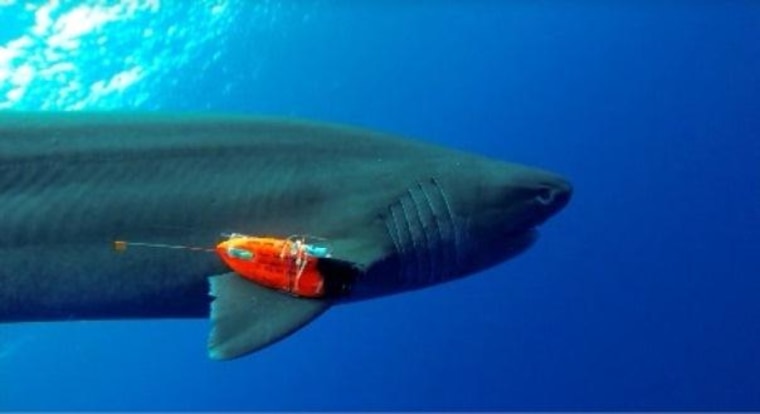Now researchers know how sharks sneak through the ocean when they think no humans are looking. How? Basically by putting frickin' webcams on their fins.
The footage made a splash last week at the 2014 Ocean Sciences Meeting in Honolulu, where marine biologists from the University of Hawaii and the University of Tokyo presented their findings about the habits of sharks in their natural environment.
More than 30 sharks of various types were hooked up with instrument packages incorporating sensors, cameras and VHF transmitters. How? Scientists flipped the sharks onto their backs to put them into a trancelike state, and the packages were strapped on before the fish woke up again, the Los Angeles Times reported.
“These instrument packages are like flight data recorders for sharks,” Carl Meyer, an assistant researcher at the Hawaii Institute of Marine Biology, said in a news release. “They allow us to quantify a variety of different things that we haven’t been able to quantify before.”
The sharks eventually shed their instrument packages, and researchers tracked the transmitters to recover the devices.
The video and data revealed that the sharks traveled in close formation with other species, perhaps as a protective strategy. Deep-sea sharks tended to swim in slow motion, compared to species in shallower water. Scientists also found that sharks used powered swimming more often than gliding motions in their travels — which runs counter to the conventional wisdom.
The next step is to give ingestable instrument packages to sharks and other top ocean predators so that researchers can document their diets.
"It is all about getting a much deeper understanding of sharks’ ecological role in the ocean, which is important to the health of the ocean and, by extension, to our own well-being," Meyer said.
